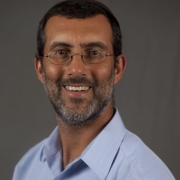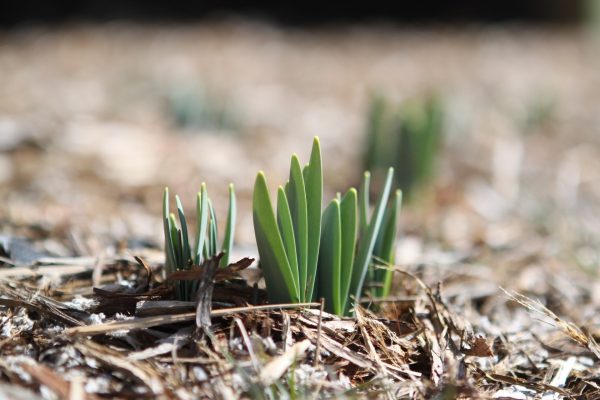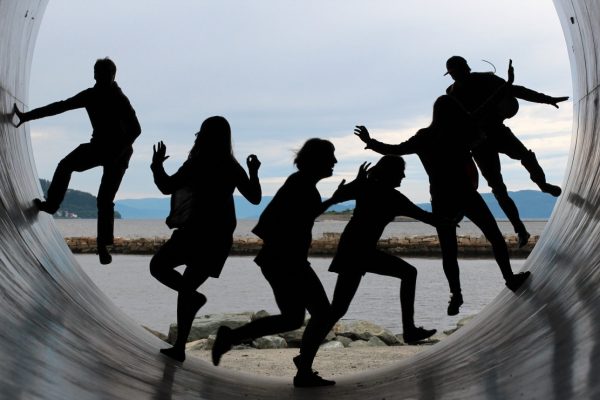The Inside Out Wisdom and Action Project, (IOWA Project), supports social change makers to integrate Jewish spiritual wisdom into their lives in order to bring their most grounded, visionary and creative selves to their leadership, making social justice activism a sustainable, transformative practice.
Transicription: Hi, I’m Rabbi David Jaffe and I lead the Inside Out Wisdom and Action Project, which helps make accessible Jewish spiritual practice for people working for social change.
I want to share something today, a practice from the Mussar tradition, which is the tradition of Jewish applied ethics. And this is the practice called hitpaalalut or hispaaus which is the repetition of a verse from Torah to evoke emotion and thought that imprints on the soul.
The context that I want to offer this is one of a practice that helps us get at understanding and doing something about systemic oppression. I want to just jump off of a teaching from Rebbe Shesh Rishon about how sinat chinam or baseless hatred isn’t actually not necessarily hatred but not loving enough, loving some people but not loving others and putting love in their direction. And systemic racism thrives because not enough people are paying attention to how that racism is functioning and only the most dramatic examples of racism and violence people pay attention to, but the daily racism of housing and schools and health care and all that, that goes unknown.
And one of the ways that we can love more and be able to understand systemic racism and any systemic oppression really is by paying more attention and by listening more and really listening and seeing.
So the hispaaus, the practice I want to do with you, is on a verse from the end of Deutoronmy, Chapter 27. It goes hasket ushma yisrael hayom. Hasket, “pay attention,” ushma yisrael hayom, “listen Israel today.” This is the verse that is actually aligned in the mystical tradition with the month of Av, which is the month of raising up or healing of hearing.
So hasket ushma yisrael hayom – “listen and pay attention Israel today” is about really hearing. So we are going to start the practice. We’ll start with something called hakanah, which is the “preparation.” We will sit for fifteen seconds quietly ready to move into the practice and then I will demonstrate the practice for you, how the practice works. What I will do is, I will repeat this verse and bring your thoughts in with the intention of thinking about: “Where do I need to pay attention more or listen more?”
Ex: as I am a person who identifies with being white, [this practice is] with systemic racism, but this can work with whatever group you may be in that you are not in that particular target group, where you need to pay attention better.
So here we go, let’s sit together quietly for fifteen seconds
[Pause for 15 seconds.]
Here is the practice:
Hasket, hasket ushma yisrael hayom. Hasket, pay attention, pay attention, ushma, ushma yisrael hayom, listen Israel today.
Pay attention. Pay attention to the ways that the schools and the size of the classrooms in communities that are predominately white are smaller than in communities that are predominantly People Of Color.
Pay attention, hasket ushma yisrael hayom, hasket ushma yisrael, how COVID is impacting people and families of people of color, way more than it’s been impacting my family.
Hasket, hasket ushma yisrael hayom. Pay attention. Are the books in the children’s library have any representation of Black people and POC, or are they all white. Hasket, hasket ushma yisrael hayom. Hasket ushma yisrael hayom.
So I ask you now at this point you can turn the recording off and continue on on your own for however long you have to do this. Two, three, five minutes. To work with this verse by repeating it, chanting it and connecting it into really trying to see what systemic oppressions need more attention from you that you can pay more attention to, that you can listen better to. Okay, and come back when you are ready.
[Pause the recording, and take time to practice on your own.]
Welcome back, I hope that you had a powerful practice. I recommend doing this over a course of a number of days. So what we will do is we will end the practice by sitting together quietly again and let sink in the emotions, thoughts that are with you. So let’s sit together again for another 15-20 seconds.
[Pause for 15-20 seconds.]
And we’d like to end with one gratitude, one statement of gratitude about anything. So I am feeling grateful now to our Mussar masters for having given us practices like this so we can open our hearts and open our souls. I will just end with a statement from Rabbi Yisrael Salanter, the founder of Mussar Movement and person who created and popularised this technique we just did: that we want to have the words of Torah imprint on our souls and make changes and really I would say for us to open us up to really see and understand and end systemic oppression. Thank you.
 Rabbi David Jaffe is the founder of the Kirva Institute and leads the Inside Out Wisdom and Action Project. He is the author of Changing the World from the Inside Out: A Jewish Approach to Personal and Social Change, which won the National Jewish Book Award for Contemporary Jewish life. His teaching, writing, organizing and consulting explore the intersection of moral and spiritual development and ethical action in the world. He teaches Mussar (applied Jewish ethics) and Jewish spiritual wisdom widely throughout North America with organizational and social change leaders, educators and spiritual seekers of all ages.
Rabbi David Jaffe is the founder of the Kirva Institute and leads the Inside Out Wisdom and Action Project. He is the author of Changing the World from the Inside Out: A Jewish Approach to Personal and Social Change, which won the National Jewish Book Award for Contemporary Jewish life. His teaching, writing, organizing and consulting explore the intersection of moral and spiritual development and ethical action in the world. He teaches Mussar (applied Jewish ethics) and Jewish spiritual wisdom widely throughout North America with organizational and social change leaders, educators and spiritual seekers of all ages.
David was a founding board member of Avodah: The Jewish Service Corps and helped start the Greater Boston Interfaith Organization, an IAF affiliate. He has a masters in social work from Columbia University and private rabbinic ordination from Israel. He is a senior faculty member with the Mussar Institute, a visiting research fellow at Boston University and adjunct faculty at the Hebrew College Rabbinical School. David serves on the Board of Directors of the Brockton Interfaith Community and lives in Sharon, MA with his partner, Janette and two teenage boys.











